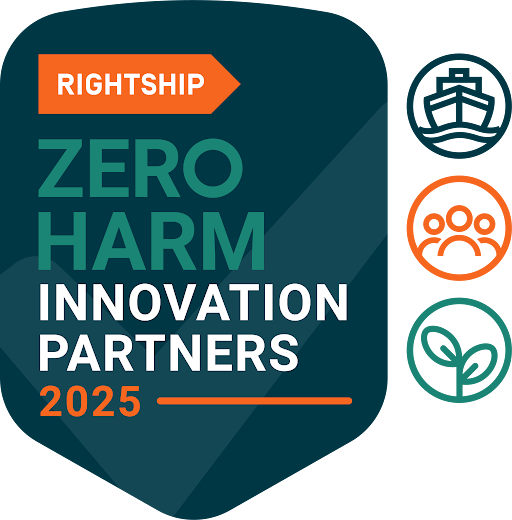World Earth Day: The Maritime Industry Towards Sustainability
Each year, World Earth Day prompts us to reflect on the state of our planet and reaffirm our commitment to preserving its natural resources. For those in the maritime sector, this day holds particular significance. The industry, pivotal in global trade, is also a significant contributor to environmental challenges. It's a dual role that bestows great responsibility and an even greater opportunity for change. At Maritime Trainer, we recognize this duty and strive to lead by example, advocating for and implementing sustainable practices that contribute to a healthier planet.

The Maritime Industry at a Crossroads
The maritime sector is a cornerstone of the global economy, responsible for transporting over 80% of the world's goods by volume. However, this comes at a cost. The industry is a substantial contributor to marine pollution, from oil spills and ballast water discharges to the accumulation of marine debris. Additionally, ships are a major source of global greenhouse gas emissions, contributing to global warming and climate change.
Given these impacts, there is an urgent need for the maritime industry to transition towards more sustainable practices. This transition is not just about compliance with new regulations but is also a moral imperative to reduce our ecological footprint. World Earth Day serves as a reminder of this pressing need and an opportunity to reflect on how far we have come and how far we still need to go.
Maritime Trainer's Commitment to Sustainability
At Maritime Trainer, we believe that training is fundamental to achieving sustainability in the maritime sector. We are dedicated to providing training that not only equips maritime professionals with the necessary skills but also instills a deep-seated respect for the environment. Our courses cover everything from fuel-efficient operations and waste management to emergency response and the handling of hazardous materials. We strive to create a workforce that is not only skilled but also ethically aware of the environmental impacts of their actions.
Furthermore, we are continuously updating our curricula to include the latest best practices and technological advancements aimed at preserving marine ecosystems. We also actively participate in and support research initiatives that seek to reduce the environmental impact of maritime operations.
The Role of Technology and Innovation
Innovation is key to driving sustainability in the maritime sector. New technologies such as cleaner fuels, advanced waste treatment systems, and energy-efficient ship designs are revolutionizing the industry. At Maritime Trainer, we ensure that our trainees are well-versed in these technologies. Our simulators and training modules are regularly updated to reflect the latest advancements, preparing our graduates to be at the forefront of sustainable maritime operations.
Moreover, we advocate for smart shipping practices that leverage digital technology to optimize route planning, reduce fuel consumption, and minimize emissions. These practices are not only environmentally beneficial but also cost-effective, providing a strong incentive for companies to adopt them.
Collaboration and Global Initiatives
Achieving sustainability in the maritime sector is not a challenge that any single entity can tackle alone. It requires collaboration among shipping companies, governments, regulatory bodies, and training institutions. Maritime Trainer actively participates in global forums and workshops that aim to foster such collaboration. We share insights, learn from others, and together, drive the agenda for a cleaner, greener maritime industry.
We also support international agreements and conventions aimed at protecting the marine environment, such as the International Maritime Organization’s (IMO) 2020 Sulphur Cap, the Ballast Water Management Convention, and the Hong Kong Convention for the safe and environmentally sound recycling of ships. These regulations are crucial steps towards reducing the maritime industry’s environmental footprint.
Earth Day Every Day
While World Earth Day is an important event that brings attention to environmental issues, at Maritime Trainer, we believe in living these values every day. Our commitment to sustainability is embedded in our corporate culture and is reflected in our daily operations. We encourage our staff and trainees to adopt sustainable practices in their personal and professional lives, creating a ripple effect that extends beyond our classrooms and into the wider community.
The Future is Green
As we look to the future, the maritime industry stands on the brink of a sustainable revolution. At Maritime Trainer, we are excited to be a part of this transformation. We continue to invest in our training programs and facilities, ensuring that we remain at the cutting edge of maritime training. Our goal is not just to respond to the changes in the industry but to lead them.
In conclusion, this World Earth Day, let us renew our commitment to the planet. Let's embrace the practices that protect and preserve it for future generations. The maritime industry has a unique role to play in this endeavor. At Maritime Trainer, we are proud to lead the charge towards a more sustainable and environmentally friendly future.




